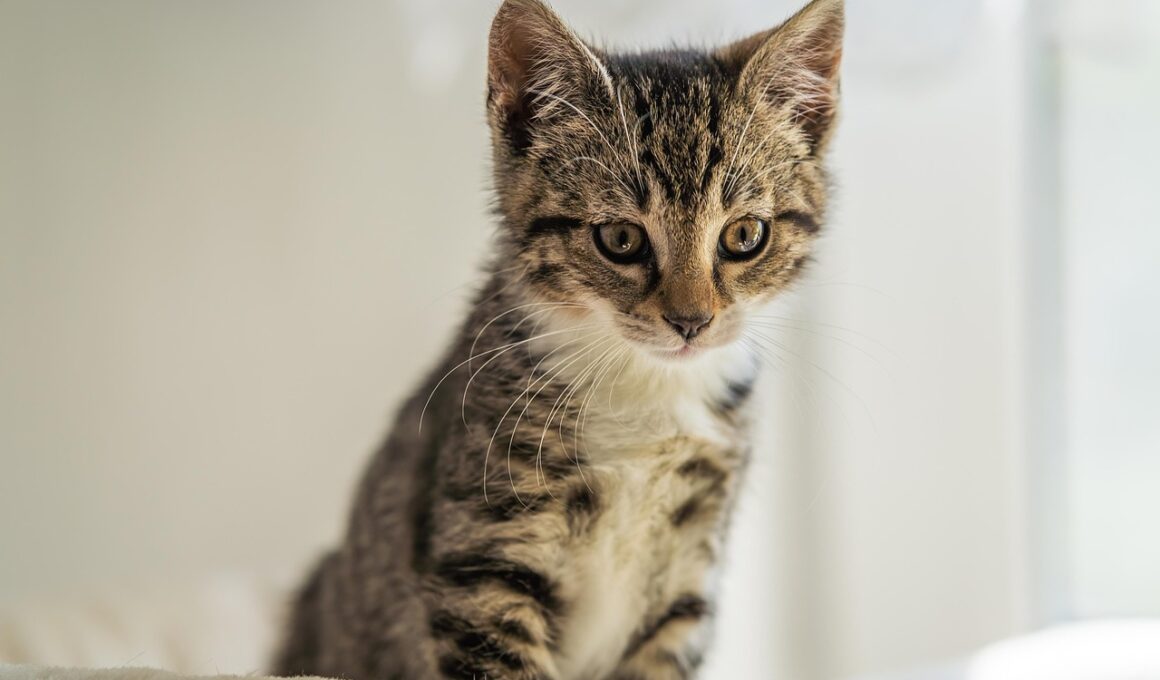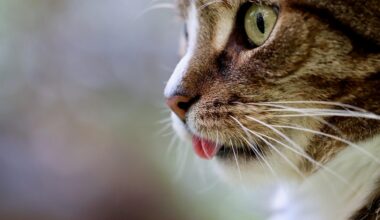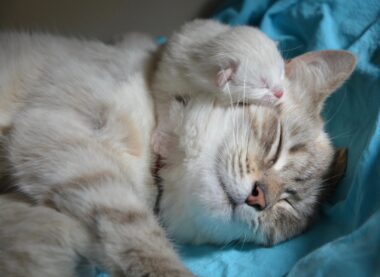Ensuring Proper Socialization Before Kitten Sales
In today’s cat breeding industry, ensuring proper socialization before sales is crucial. This process lays the foundation for healthy, well-adjusted kittens. Socialized kittens grow into confident adults, making them more adoptable and pleasant companions. The socialization process should begin as early as possible, ideally when kittens are just a few weeks old. During this critical period, they are most receptive to new experiences and interactions. It is the breeder’s responsibility to start this journey. To foster a positive environment, consider introducing kittens to various stimuli. This includes sounds, smells, and different people. Interaction with adult cats and other animals can also significantly enhance their social skills. Engaging the kittens in play sessions helps build their confidence. The aim should be to expose them to various situations without overwhelming them. Regular handling, petting, and gentle training can go a long way in this. Socialization reduces anxiety and fear-based behaviors in new environments. Additionally, kittens that have experienced proper socialization are more resilient. Consequently, potential owners should prioritize adopting socially adjusted kittens, ensuring a smoother transition into their new homes.
Proper socialization involves introducing the kittens to human interaction as well. Regular visits to your home by friends and family can help the kittens adjust to different people. These experiences are integral to developing their social skills. When friends pet and play with the kittens, they learn to trust humans, which is essential in the adoption phase. Additionally, exposing kittens to diverse environments can further strengthen their adaptability. Take your kittens to different rooms within the home, gradually introducing them to outdoor experiences. Safety should always be the primary consideration during socialization. Supervised outdoor play can introduce them to various sounds and sights, enhancing their comfort in different environments. As kittens grow, creating a routine of enjoyable activities can ensure they remain well-socialized. Incorporating playtime, training, and social interactions into their daily schedule fosters their behavioral development. Younger kittens often bond more easily with people and other pets, reinforcing positive lifelong behaviors. Doing so not only benefits the kittens but also enriches the lives of their future families. Understanding the socialization process can lead to adopting healthier, happier kittens that thrive in any loving home.
Incorporating fun and engaging activities into socialization can enhance the experience for both the kittens and the breeder. Playtime, for instance, serves as an invaluable tool for building trust. Use toys to stimulate playful interactions, allowing kittens to express their natural hunting instincts. This not only fosters physical skills but also encourages mental stimulation. Implementing a variety of toys, such as feather wands or laser pointers, can help in this regard. Notably, kittens that have had regular play experiences tend to display better problem-solving skills later. Additionally, consider incorporating structured training sessions. Simple commands and tricks can be introduced through positive reinforcement, making the learning process enjoyable. Rewarding good behavior with treats or praise reinforces the desired actions. Consistency is key, as it establishes a routine. Breeders should be patient and adaptable, catering to each kitten’s unique temperament. Creating a fun environment reduces stress and fosters a loving atmosphere. By fostering early positive experiences, kittens become more sociable and eager to engage with their future families. Adopting these practices significantly increases a kitten’s chances of thriving in various settings both now and in the future.
One must also consider health and wellness during the socialization phase. Healthier kittens are often more spirits and ready to socialize. A well-balanced diet plays a critical role in promoting physical and emotional growth. Breeders should provide high-quality nutrition, tailored for growing kittens, to ensure they thrive both cognitively and physically. Regular veterinary check-ups are crucial as well. Kittens should receive vaccinations and be monitored for overall health, preventing any potential illnesses that may hinder socialization efforts. While fostering an ideal environment, breeders must also maintain cleanliness and hygiene practices. A clean space provides a safe location for socialization and play. Sanitation minimizes the risk of infections or disease that can impact the kittens’ well-being. Breeders should also observe the kittens for any signs of illness; early detection can help ensure timely medical attention. Beyond physical health, emotional well-being also requires attention. Creating a safe space allows kittens to explore and interact at their own pace. By addressing both health and wellness and facilitating enjoyable experiences, kitten breeders set the stage for confident and healthy animals ready for loving homes.
Moreover, it’s essential to communicate openly and effectively with potential adopters. Providing detailed information about each kitten’s history, personality, and socialization progress can guide buyers in their selection process. Transparency fosters trust between the breeder and the potential pet owners significantly. Educated buyers are more likely to appreciate and support responsible breeding practices. Additionally, breeders should offer guidance on maintaining the kittens’ socialization routines in their new homes. After adoption, kittens require support to transition smoothly into their new environments. Encouraging new owners to continue socialization efforts helps ensure long-term success. Breeders can recommend socialization strategies, resources, and training options to assist adopters. This partnership between breeders and buyers creates a community of responsible cat ownership. Working together for the well-being of the cats strengthens familial bonds and enriches the entire experience for everyone involved. Consider organizing gatherings for adopters to meet and connect socially, sharing experiences and tips. These events create a supportive network, promoting responsible breeding, improved kitten welfare, and better placement outcomes for all kittens adopted in the future.
By prioritizing proper socialization, breeders lay the groundwork for happy, healthy, and well-adjusted cats. The journey begins at a young age, during which every experience counts. Positive interactions create confident companions, minimizing behavioral issues throughout the life of the cat. As such, making socialization a key focus throughout the breeding process is crucial for the future success of each kitten adopted. Kittens that feel safe and loved are more receptive to forming bonds with others. Such bonds foster their well-being and adaptability in ever-changing environments and situations. The role of breeders extends beyond merely producing kittens; breeding ethics demand a commitment to quality and care. Every action taken before the sale impacts the furry friend’s future tremendously. Socialization should be viewed not just as a duty but as an opportunity to shape the lives of these kittens for the better. By embracing responsible practices, breeders contribute to a community focused on promoting ethical kitten adoptions. In turn, this leads to more informed pet ownership, ultimately transforming the lives of both the kittens and their new families as they embark on their shared journey together.
In summary, the importance of proper socialization cannot be overstated in the realm of kitten sales. Breeders who dedicate themselves to this process not only enhance the lives of the kittens but also the lives of their future owners. A well-socialized kitten is better equipped to face the world, reducing stress for both the cat and owner. Effective socialization strategies contribute positively to the overall experience of adopting a kitten, ultimately benefiting everyone involved. Adopting a gradual approach can yield the best results, ensuring kittens feel secure while exploring their surroundings. Breeders should continually assess their methods, adapting as necessary to meet the unique needs of each kitten. It is important for breeders to remain engaged and proactive, taking advantage of every opportunity for socialization. As responsible breeders prioritize these skills, they ensure the future adoption of healthy, sociable kittens. Awareness of the effects of early socialization will benefit breeders and future pet parents alike. With dedication and care, the promise of ethical kitten sales will also lead to loving and harmonious families for all.
Conclusion: A Breeder’s Responsibility
The responsibility of a breeder extends beyond the sale; it encompasses ensuring the long-term happiness and health of their kittens. Ensuring proper socialization is a vital part of this commitment. By prioritizing social skills, health, and emotional well-being, breeders contribute to a more positive future for both kittens and their adoptive families. The entire process, from breeding to placement, should be approached with dedication and knowledge. Socialized kittens not only become better pets but also enhance the pet ownership experience. The goal of every responsible breeder should be to create an environment where every kitten can thrive. Through effective socialization practices, cats will transition seamlessly into new homes. When breeders invest time and resources into raising well-adjusted kittens, they foster responsible pet ownership. The impact of these efforts is profound, leading to healthier, happier cats and families. Embracing ethical practices in breeding ensures a brighter future for all involved. Driven by compassion, responsibility, and commitment, the journey of cat breeding can lead to cherished relationships between humans and their feline companions.





